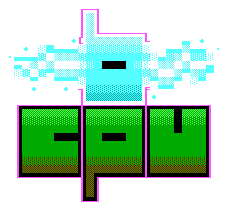
Recently, I've been working with a good client on a project that requires network communication between two sites and provision for a history feature.One of the collaborators is a fan of mongodb and nodejs - two rather nifty projects that I've been meaning to work with for a while. I had no idea but dived in anyway.
Node appears to have a set of modules which you can install with npm. These modules are placed within the directory in which you run npm which is presumably where your node script is. One useful modules is express which sets up basic handling for a website. You can then write code such as:
var Express = require('express');
var app = Express.createServer();
app.get('/', function(req, res){
res.send('Hello World');
});
app.listen(3001);
Of course, post requests, paths and all the usual gubbins are supported.
Mongo has a set of drivers that work with node as well. I used the Mongodb native driver which seemed pretty good, except for one important thing - the syntax is not quite the same as the examples given on the mongodb website. It took me sometime to realise why my queries weren't working.
var Db = require('mongodb').Db;
var Connection = require('mongodb').Connection;
var Server = require('mongodb').Server;
var client = new Db('testing', new Server("127.0.0.1", 27017, {})),
test = function (err, collection) {
var Figure = {id: 1, limbs : [ [1.0,5.0,10.0] , [-1,1,1] ] };
collection.insert( Figure , function(err, docs) {
// Locate all the entries using find
collection.find().toArray(function(err, results) {
console.log(results);
// Let's close the db
client.close();
});
});
};
client.open(function(err, p_client) {
client.collection('test_insert', test);
});
You can install mongodb with homebrew and run it locally on a mac with
sudo mongod run --config /usr/local/Cellar/mongodb/1.8.1-x86_64/mongod.conf
Fairly straight forward. Sadly, for use in this project, it turned out that using boost::asio with tcp::iostreams are superior. I still haven't managed to work with streams in nodejs yet, though they do exist.
